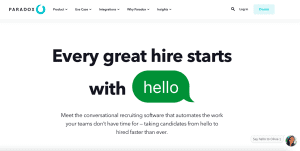Communications strategist Olivia Vandyk, from ginghamcloud.com in Much Hadham, shares her top tips in the Indie…
I am the first to say that I am not really a football fan, though I have been known to watch international games. And, buoyed by the national excitement, I tuned into the UEFA Women’s Euro final on Sunday with fingers crossed and baited breath.
When the triumph came it was marvellous. Then we heard former England player Alex Scott quite rightly saying: “I’m not standing up at corporate events in front of sponsors anymore begging for them to get involved in the women’s game because, you know what? If you’re not involved, you’ve missed the boat, you’ve missed the train. Because look at this… it has finally left the station and it is gathering speed.”
You may not be a corporate sponsor at the national level. But there is something you can do to make a difference today. You can put your money where your mouth is in terms of supporting women.
Not only is gender parity important from a human perspective, but it makes business sense to champion gender diversity.
You can create a fair hiring policy. This isn’t about choosing candidates based on gender, but instead creating jobs which attract both genders and accommodate equally.
Think about the language in your job advertisements. “We work hard, play harder and banter is an important part of our business” will send a different message to “We support a work/life balance and make our office a fun place to be”.
Of course, many women look for work which accommodates flexible hours to help manage childcare and other responsibilities, so perhaps offering a full-time role as a job share may work for everyone. Likewise, attractive maternity pay can be another female-orientated incentive that can simply help get women through the door.
Recent legislation dictates that companies with more than 250 staff must now publish their pay gap figures, but that gap is also dictated by factors such as women being inherently attracted to lower-paying jobs as well as often having to work part-time to fit around family life.
This is where small businesses can really help create long-term change. Smaller organisations can also become involved with education and programmes to teach and support young women pursuing careers which are under represented.
All businesses are people businesses, even if you are selling widgets. How can you ensure everyone in your team is supported in order to succeed? How can you reinforce women’s and men’s inclusion in the workplace equally?
Things to be considered include paternity leave, bringing men into traditionally female positions and supporting mental health initiatives.
Research shows that female-led companies drive three times the returns of companies predominantly led by men, so that’s something to consider when looking at management positions too.
Like the Lionesses, we can all drive change and create a workplace that sets an example for the future.



